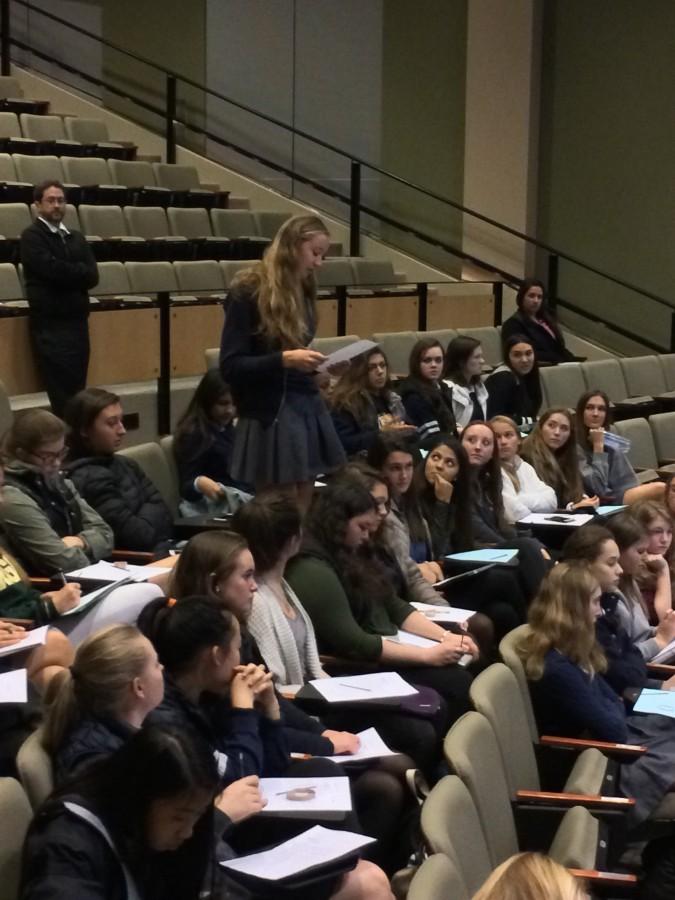Sophomores, seniors learn roles of perspective, penitence in the judicial system
A criminal defense attorney spoke to three groups of students about penitence, and how she encounters it in her work.
Audrey Brooke reads from her letter of apology, as members of her senior class and English teacher Mark Botti look on. The apology writing brought audience members into the case, and tried to give them a sense of the guilt felt by judges, juries, and everyone involved in legal cases when an innocent person is convicted.
November 19, 2015
Sophomores and seniors took time out of their Hislish and colLab periods to learn about the role that penitence plays in criminal justice, and how perspective is everything in the American judicial system.
“It definitely gave us a new perspective and helped to show us that what we are learning has real-world applications,” sophomore Natalie Lunbeck said. “Seeing actual situations, knowing that oppression is actually happening right now was a great way to spend a class.”
Criminal defense attorney Sejal H. Patel, who specializes in state and federal criminal appeals, spoke to the students about her experiences as a lawyer, focusing on the case of one man falsely convicted of a sex offense.
Guy Randolph, who was homeless and struggling with alcoholism, walked near the place where a primary school-aged girl had been molested earlier that day. He was arrested, despite not matching the girl’s description, and sentenced to 10 years in prison, along with a designation of a Tier 3 sex offender.
“Boston Police in the 1990s was really aggressive about cleaning up the streets, and if they thought that somebody committed a crime, or if they were close enough, they were arrested,” Patel said. “Guy was out on the streets, and was institutionally a suspect.”
Randolph was exonerated of all charges and declared innocent in a trial that took less than 10 minutes, almost twenty years after his original conviction.
“His story really touched me because people with mental illnesses don’t necessarily get fair treatment in society, and his situation was a lesson for all of us to take,” sophomore Isabel Elgin said. “It was a lesson in checking your judgement, because if you don’t, it can lead to problems for people who can’t do anything about it.”
Patel then assigned each student a role—such as a jury member, judge or district attorney—and had them write a letter of apology to an imaginary person they had wrongly convicted.
“The apology letter was really interesting because it put us into the situation, and let us see it first-hand,” Elgin said. “It was a very effective approach to learning about the oppression in the justice system.”
Patel’s presentation then touched on the case of Tarek Mehanna, who had blogged about his support of al-Qaida and the 9/11 attacks, which she used to encourage students to be open-minded, her overall goal in the presentation.
“Even if you think you’ve made up your mind about someone indefinitely, don’t forget that it’s never too late to encounter something that can totally change your perspective,” Patel said.










